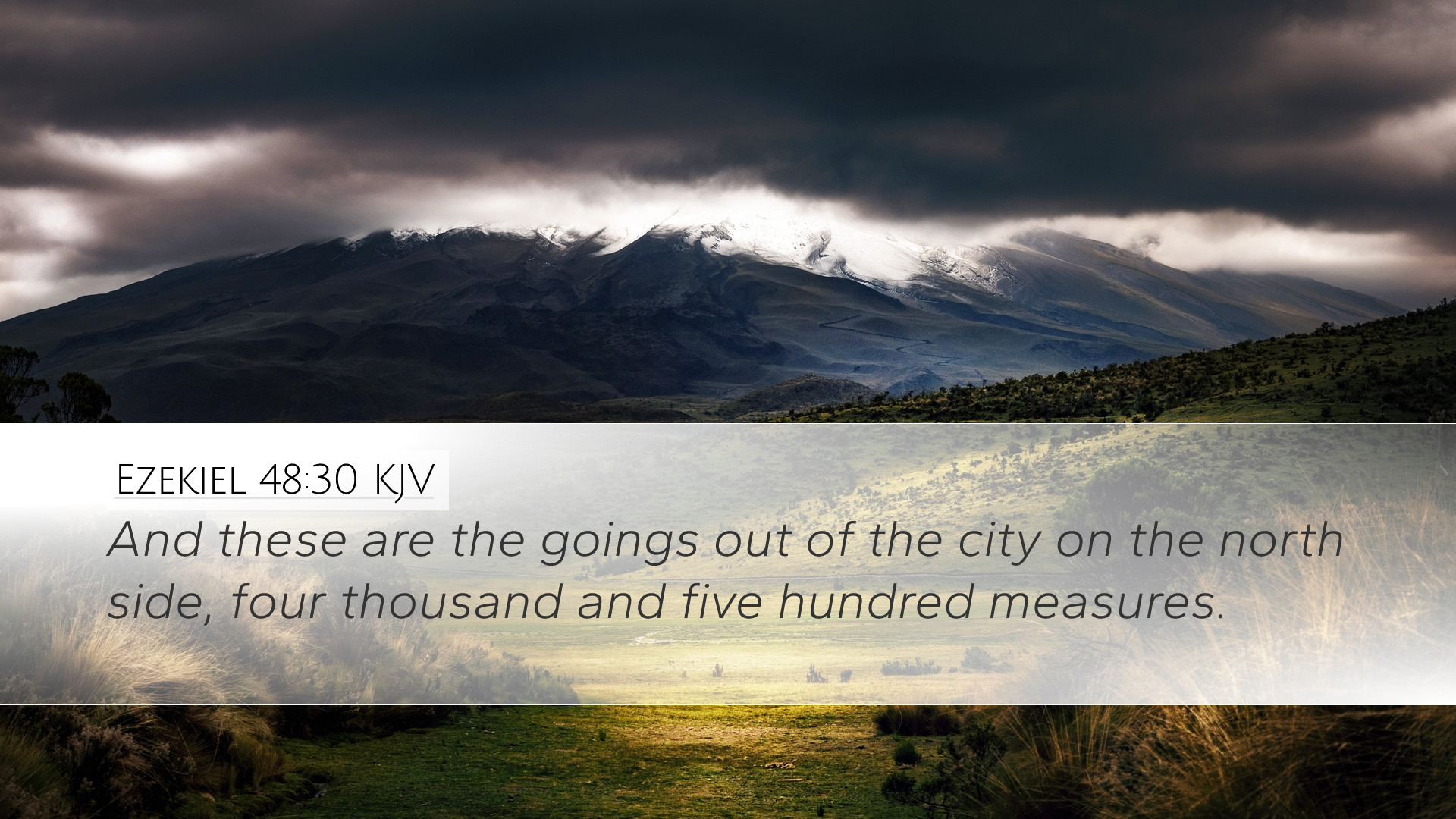Ezekiel 48:30 - A Commentary
Verse Reference: Ezekiel 48:30
"And these are the goings out of the city on the north side, four thousand and five hundred measures."
Contextual Overview
Ezekiel 48:30 serves as part of the final chapter of the Book of Ezekiel, where the prophet delineates the boundaries and allocations of the land for the tribes of Israel in the envisioned future restored community. This passage is pivotal as it illustrates the divine order and purpose in the arrangement of the land, emphasizing the importance of both physical and spiritual geography in God’s redemptive plan.
Historical Background
In the historical context, Ezekiel’s prophecies were delivered during the Babylonian Exile, wherein the people of Israel faced profound questions about identity, land, and future hope. The description of the land's divisions reflects God’s promise to restore Israel, reinstating both the people and their homeland. The vision of the city reflects the ideal of a perfect and divinely ordained society.
Commentary Insights
Analysis by Matthew Henry
Henry emphasizes that this vision is not merely about the physical dimensions but also the spiritual significance of the city. The precise measurements are a representation of God’s meticulous providence in every aspect of life. The city’s gates are aligned with the corresponding tribes, symbolizing an approachable and organized divine authority.
Insights from Albert Barnes
Barnes addresses the numerical measurements found in this verse, interpreting them as demonstrating completeness and divine order. He suggests that these dimensions might reflect a sense of security and stability, encouraging the people to anticipate God’s protective presence within their future city.
Perspectives from Adam Clarke
Clarke focuses on the geographical and topographical implications of the measurements, asserting that they highlight the stability of Israel’s future. He underscores that the northern gate’s measurement indicates the boundaries of safety and community—a realm in which God's people can flourish in accordance with His will.
Theological Implications
This verse encapsulates several key theological themes essential for pastors, students, and theologians.
- Divine Order: The structure of the city mirrors God's ultimate sovereignty and order in creation. It signifies that nothing is left to chance when God constructs His kingdom.
- Restoration and Hope: Ezekiel’s prophecies assure the exiled community of God's intention to restore them, infusing a sense of hope that resonates through generations.
- Community Identity: The careful delineation of tribal boundaries underscores the identity and purpose of community within God's plan, inviting reflection on communal responsibility and belonging in today's context.
Practical Applications
For modern-day believers, Ezekiel 48:30 serves as a rich source of reflection and application:
- Emphasizing Community: The organized structure of Jerusalem invites the church to consider its role in fostering a sense of belonging and unity among believers.
- Confidence in God’s Promises: As Israel looked forward to a promised restoration, so today’s Christians can lean on God’s promises, trusting in His faithfulness amid uncertainty.
- Responsibility of Believers: The established geographic boundaries reflect the call for believers to know their limits and responsibilities within the body of Christ.
Conclusion
In Ezekiel 48:30, the strategic significance of the measure of the city offers a treasure trove of insights for spiritual leaders and scholars alike. It reminds them of God's sovereign oversight in establishing communities that reflect His nature and purposes. Reflecting on these themes not only builds theological understanding but also inspires actionable faith in our communities today.


